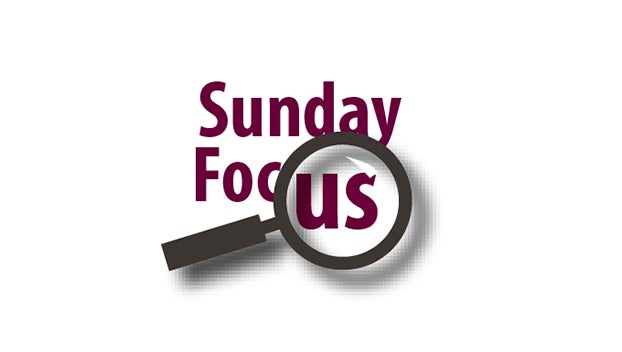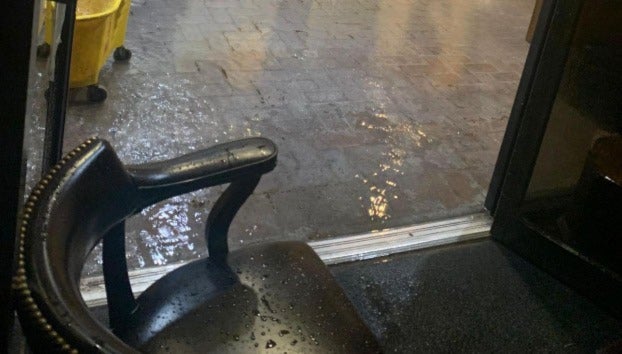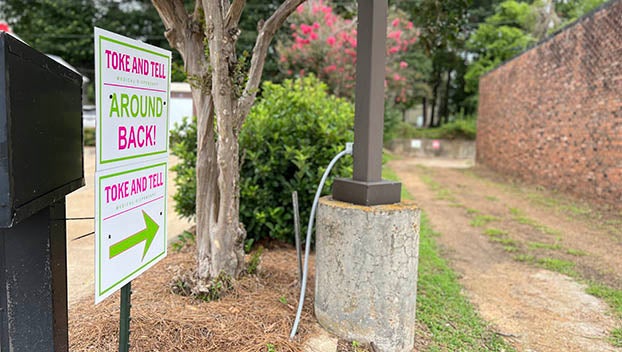Officials: Trump budget could be devastating to area
Published 1:18 am Sunday, June 11, 2017
NATCHEZ — President Donald Trump’s proposed budget looks to have a significant impact on Mississippi, a state heavily reliant on federal dollars, but the impact on Adams County could be much more devastating.
The $4.1 trillion budget calls for cuts to programs that provide assistance to the poor, including food stamps, Medicaid, disability programs and student aid. On the other hand, The budget dubbed, “A New Foundation for America,” calls for an increase in military of 10 percent and spending $1.6 billion to begin work on a wall on the border with Mexico.
“President Trump’s budget is perhaps the most damaging proposal for rural America that we have ever seen,” said Mississippi Rep. Bennie Thompson (D-Miss.) in a statement. “The Trump budget seeks to eliminate the Low Income Energy Assistance Program, the Rural Business and Cooperative Service, the Rural Water and Waste Disposal Program and the Single Family Housing Direct Loans Program. President Trump also reneged on his promise to not cut Medicaid. It is clear that President Trump has turned his back on rural America.”
The elimination of the Low Income Energy Assistance Program would mean community action agencies would no longer receive funding to assist families with utility bills, Thompson said.
Several of the programs would also impact neighborhood and community revitalization efforts, Thompson said, including the elimination of the Community Services Block Grant, Choice Neighborhoods, Neighborhood Reinvestment Corporation, Economic Development Administration Minority Business Development Agency and National Infrastructure Investments (TIGER).
Thompson is not the only state leader concerned, as former Mississippi Development Authority Board member and Republican Bill Crawford said he has concerns federal cuts could impact Mississippi more than other states, particularly if leaders do not prepare for it.
Mississippi’s Joint Legislative Budget Committee Budget Bulletin for 2017 showed $8.3 billion of Mississippi’s $18.9 billion budget being funded by federal dollars, which is approximately 44 percent of the budget.
The Tax Foundation ranks Mississippi as the state most reliant on federal aid. Louisiana is No. 2. Federal aid for both states is more than 40 percent of the states’ general revenue.
Crawford said the cuts would also impact Mississippians on an individual level.
Transfer payments make up 26.3 percent of personal income in Mississippi. In Adams County, transfer payments make up 31.3 percent of personal income.
Transfer payments are mostly federal funds transferred through government programs to benefit individuals. The programs include food stamps, Medicaid, Social Security, education grants and earned income tax credits, which are all subject to be cut. Cuts to the SNAP budget (food stamps) over a 10-year budget cycle is 25 percent.
Adams County District 4 Supervisor Ricky Gray, who has regularly stated local leaders need to do more to alleviate poverty in the community, challenged state leaders on the congressional level to know their constituents.
“If you know who you are representing, you know these cuts are going to hurt these people you represent,” Gray said. “I know who I represent, and I know they can’t afford to be cut like this.”
Gray said he has always been told the way you judge a community is how you treat senior citizens and children.
“It seems like to me, the majority of the cuts target both senior citizens and kids,” Gray said. “That’s just a disgrace.”
Natchez Mayor Darryl Grennell said the proposed cuts would devastate a state like Mississippi.
“And for the City of Natchez, people would suffer if those types of cuts are implemented,” Grennell said. “We have a severe lack of jobs right here in Adams County. There are people who want to work but they are having a tough time even finding a job. Necessities of life (nutritional services and health care), you can’t cut that for people.”
Concerning state and federal dollars trickling down to Adams County, Grennell said it was tough to say exactly how much trickles down, but that the cuts would have a direct impact on counties and municipalities.
“When we start our budget process, we have to see what we have to do in order to accommodate for that,” Grennell said. “It will have an impact on local taxpayers.”
Gray said local governments have experience in receiving unfunded mandates from the state and federal level.
“We’ll just have to tighten up and do what we have to do,” Gray said.
Supervisors President Mike Lazarus said he did not anticipate Sen. Thad Cochran (R-Miss.), Sen. Roger Wicker (R-Miss.), and Rep. Gregg Harper (R-Miss.) would leave Adams County hanging.
“They have an obligation to constituents, and they are not going to forget that,” he said. “They are receptive to anything we bring them, within reason.”
Cochran has commented on concerns about Trump’s proposed $9.2 billion in cuts to the U.S. Department of Education.
“We have our work cut out for us. I plan to use my best efforts to squeeze us through the challenge of taking a hard look at federal education programs, making improvements, and coming up with a bill,” said Cochran, who chairs the Senate Appropriations Committee, in a statement. “The education of our children is a priority in Mississippi and all our states. We need to train teachers and support the training of teachers. There are legitimate federal programs to help educate children that should be on the front burner for support.”
Natchez-Adams School District public relations coordinator Steven Richardson said the district is preparing for cuts on both the state and federal level.
“We’ve been proactive in the budgeting process by cutting 15 percent from our 2017-18 state and federal budgets in anticipation of any further cuts,” Richardson said. “Therefore, if the state passes down a less-than-15-percent additional cut, we already would have smaller budgets in place to satisfy the new cut.”
Grennell said he would be praying congress does not enact many of these cuts. He also encouraged local residents to reach out to their congressional delegation to let them hear their voices.
“The president was born with a platinum spoon in his mouth,” Grennell said. “He has no idea of what people down here on the lower level have to live and deal with. That’s what bothers me.”
Gray also said it is time to pray because he is concerned big cuts to programs helping the poor would force more people to resort to crime.
“Many people don’t have nothing,” Gray said. “People might as well get ready because the crime rate is probably going to increase.
“At the end of the day, it is praying time. We have all this bad stuff happening right now in the country. I always pray, but it is praying time.”






